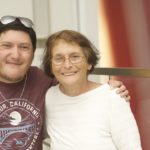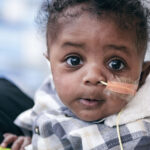A lifetime of treatment inspires Ruth to advocate care for others
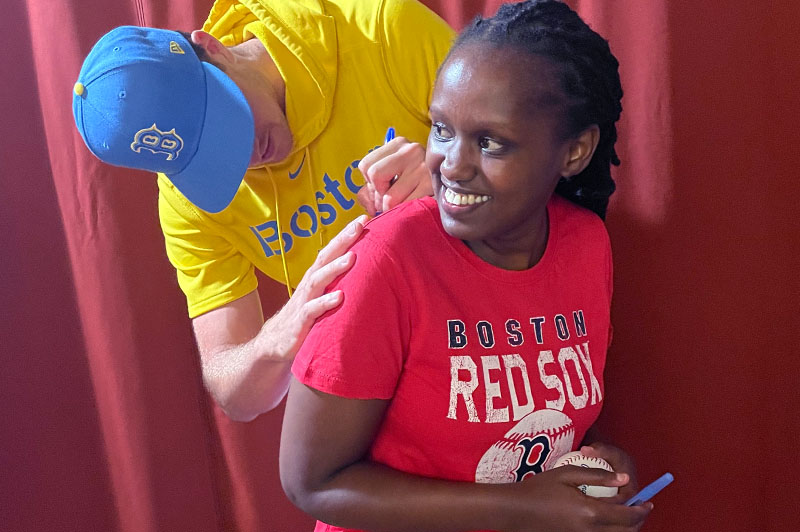
Ruth Ngwaro offers guidance to children who have heart disease. Perhaps her most useful bit of advice is telling them to not look too far ahead in their lifelong journeys and instead focus on what they can do each day.
She would know: Throughout childhood and well into adulthood, Ruth was in and out of hospitals in Kenya and the U.S. for treatment of a variety of congenital heart defects (CHD). Unsure if her health would ever improve, she accepted where she was at the moment.
She finally discovered just how healthy she could become at a time and place she least expected: at age 33, through Boston Children’s Adult Congenital Heart (BACH) Program. Focused on helping adults who have needed heart care since childhood, the BACH program has overseen Ruth’s recent treatment at the hospital. Now stronger than ever, she’s able to push forward with her own work of advocating heart care for those like her.
Struggling to find good health
Born in Kenya, Ruth was diagnosed with CHD at 3 months old. She had four holes in her heart and a hole in her mitral valve, which ensures blood moves properly between the heart’s left atrium and left ventricle. Surgeons in Kenya believed her condition was too complicated to treat, but when she was 4 years old, an aid organization arranged for her to have two surgeries at a hospital in Maryland. The four holes were repaired but the mitral valve was left alone because doctors feared a replacement could rupture.
Back home, Ruth immediately struggled. She tired easily and couldn’t keep up with other children. “When I reached the age of 11, my health had deteriorated too much,” she recalls. Her mitral valve was leaking and a defect was discovered in her aortic valve, which controls the flow of oxygenated blood leaving the heart.
The conditions greatly diminished blood flow throughout her body, but after surgeons in Nairobi, Kenya, implanted a replacement mitral valve and removed a growth on the aortic valve, Ruth finally felt healthy. “My life really changed,” she says. “I caught up with the other kids and I went to school more often than I had before.”
Yet, just when it seemed her heart issues were behind her, she later was diagnosed with atrial fibrillation (AFib), a rare arrythmia that occurs when the heart’s electrical signals cause the atria to quiver and the ventricles to work less effectively. It took time for doctors to find AFib medication that wouldn’t cause painful side effects. At 24, Ruth wondered if she faced a lifetime of difficulty.
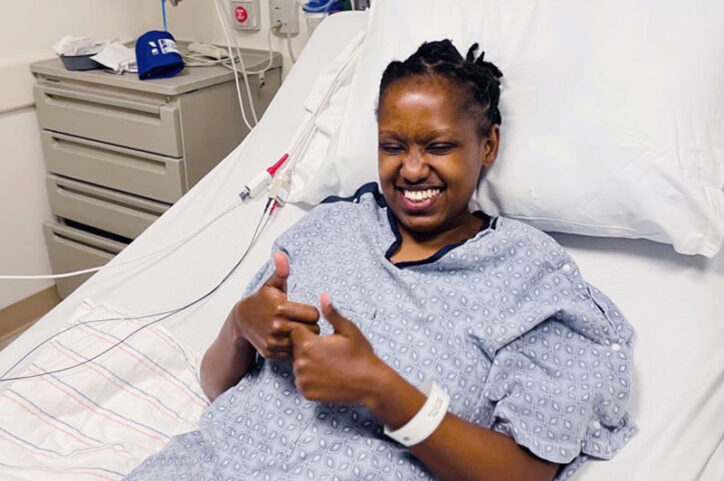
Finding the care she needed in Boston
Flash forward six years: Ruth and her mother, Mary, moved to Boston. Ruth’s primary care doctor and cardiologist recognized she needed specialized care and referred her to Boston Children’s. After a surprise diagnosis by Dr. Michael Singh, a cardiologist and the inpatient director of the BACH program, Ruth got another a mitral valve replacement because the first prosthetic was found to be small. The new valve works effectively.
Starting in 2020, she also underwent procedures to treat AFib. First, she had a surgery known as Maze (on World Heart Day, incidentally), a procedure that creates a “maze” of scar tissue that can stop faulty electrical signals. She then had a pacemaker implanted. Today, Ruth has never felt better. “It has been really good,” she says. “My health has stabilized.”
Ruth regularly sees Dr. Singh; Dr. Audrey Dionne, an electrophysiologist; and Nancy Barker, a physician assistant with the BACH program, for checkups. “I have an amazing care team,” she says. “They always keep me in the loop with everything that is going on. They are always there for me.”
Ruth maps out her future with confidence
With newfound strength, Ruth enjoys traveling farther than ever on walks. And she feels confident she will have the proper energy to someday study global health in college. It would be a perfect next chapter; she started her advocacy for health care as a youth in Kenya and it continues in Boston.
Among her many efforts to improve access to health care in Kenya, maybe her proudest achievement is starting and running the Kenya Mended Hearts Patients Association, which helps people with congenital and rheumatic heart disease. In the U.S., she now serves as a patient consultant for an initiative that advocates care for chronic diseases in Africa and Asia.
She also communicates with other Kenyan emigres in the U.S. and offers support when she sees an opportunity. Such a moment came when she and her mom learned a couple from Kenya was coming to Boston Children’s with their young son Prince so he could have treatment for encephalocele. The Ngwaros invited the family to stay at their home throughout his care process; Prince is now doing well back in Kenya.
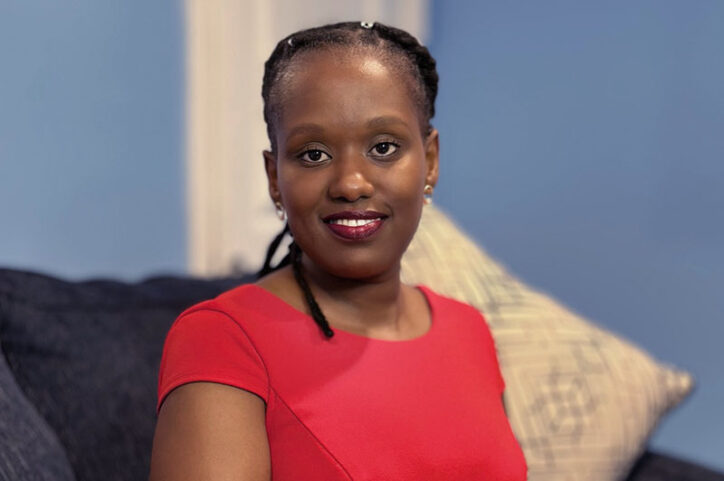
For Ruth, it was just another way to give back. “You need a great support system with the challenges you go through as a patient,” she says. “Once you go through it, you can tell people about those challenges and help them navigate it.”
Learn more about the Boston Adult Congenital Heart (BACH) Program.
Related Posts :
-

BACH Program: Heart care for patients of all ages
At 73, Fran Sansalone might not seem like a typical Boston Children’s Hospital patient. But she’s one of a ...
-

After beating the odds, Joey dreams of Hollywood
Joey Manzo’s biggest dream is to travel to Hollywood to meet Ellen DeGeneres. Given how many dreams he’s ...
-

My continuing heart journey with Boston Children’s
My connection to Boston Children’s Hospital started on a bright and sunny June day in 1979. My parents, who were ...
-

After complex heart surgery, Yah’ir is all smiles
Christina Moreland and Jimmy Austin want their 6-month-old son, Yah’ir, to have a bright future, one where he can ...



